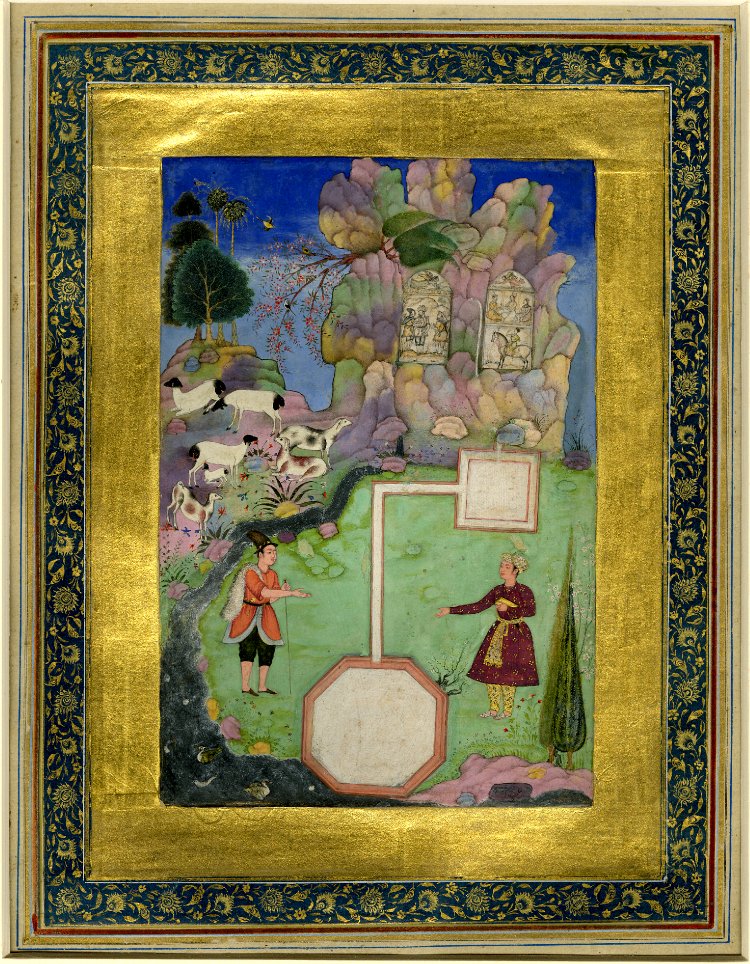FWP:
For background see S. R. Faruqi's choices. This verse is NOT one of his choices; I thought it was interesting and have added it myself. For more on Ghalib's unpublished verses, see the discussion in {4,8x}.
For discussion of takalluf bar-:taraf , see {65,1}. Here, it has a lovely effect of someone (maybe another stone-carver?) candidly leaning forward and lowering his voice, preparing to share with one colleague a bit of malicious gossip about another.
And what exactly was the ' ;xvaab of Khusrau'? Gyan Chand maintains that it was a 'sleep' of heedlessness and neglect on Khusrau's part. But ;xvaab also means 'dream', which provides a far more compelling reading. For as a youth Khusrau had a dream in which his grandfather Khusrau Anushirvan appeared to him and promised him the swiftest horse in the world, Shabdiz; the most lavish throne in the world, Taqdis; the finest musician in the world, Barbad; and, he added, 'beyond all these, you shall have Shirin, your destined love, whose sweetness and beauty will sustain you all your days'. After making this final promise Khusrau Anushirvan vanished, and the prince awoke. (from Peter Chelkowski et al, 1975: pp. 21-48 (p. 22).
This dream seemed to have been divinely authorized, and it soon began to come true. Such a strong prediction and promise would indeed create the kind of giraanii -- 'weight, burden; heaviness; gravity' and 'heaviness of spirit; depression; grief, vexation' that poor Farhad had to encounter, and that counteracted his own 'light-handedness' and dexterity. Thus his supreme effort ended in predestined failure. A strikingly similar verse is {200,5x}.
It's also grammatically possible, thanks to the i.zaafat , that the dream 'of' Khusrau was a dream that Farhad had about Khusrau. A dream that inspired 'depression, grief', or envy? In a verse this abstract, it's hard to rule anything out.
This verse belongs to the set offering snide remarks about famous lovers; for more such verses, see {100,4}.

Zamin:
This verse is even more obscure and subtle [than others]! The understanders may understand-- of what was the thought easy, and in what way did the sleep/dream of Khusrau create heaviness!
== Zamin, p. 333